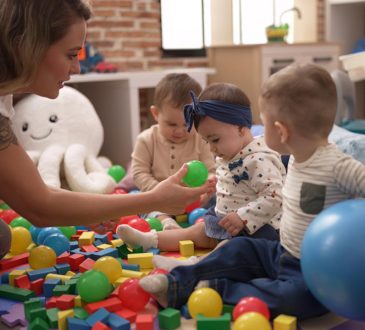
Preparing your autistic child for a successful and fulfilling future involves taking proactive steps to support their development in various areas. From early education to healthcare, ensuring that they receive the right guidance and resources can make a significant difference in their progress. Here are some key strategies to help set your child on the path to a bright future.
1. Getting Them Enrolled in Montessori Preschool
One of the most effective ways to prepare your autistic child for a successful future is by enrolling them in a Montessori preschool. Montessori programs are designed to foster independence, creativity, and a love for learning, making them a great choice for children on the autism spectrum. The Montessori preschool program offers a flexible, hands-on approach that allows children to explore their interests at their own pace, which is particularly beneficial for autistic children who may need a different kind of structure in their learning environment. With individualized learning and a focus on building social and emotional skills, Montessori can help your child develop a strong foundation for later academic success.
2. Ensuring Autism Diagnosis Evaluation
Before embarking on a journey to provide your child with the necessary tools for success, it’s crucial to get an autism diagnosis evaluation. A thorough evaluation will provide a clear understanding of your child’s specific needs, strengths, and challenges. This process typically involves a team of healthcare professionals who assess various aspects of your child’s development, including communication, social skills, and behavior. By having a proper autism diagnosis evaluation, you can better tailor interventions, therapies, and educational programs that meet your child’s unique needs. Early diagnosis allows you to access resources and support services that can improve your child’s development and help them thrive in various environments.
3. Seeking Early Intervention Therapies
Once your child has been diagnosed, it’s essential to focus on early intervention therapies. Applied Behavior Analysis (ABA) therapy, speech therapy, and occupational therapy are some of the most common treatments used to help children with autism improve communication, social interaction, and daily living skills. Early intervention plays a critical role in maximizing a child’s potential, and the earlier these therapies are started, the better the outcomes can be. Consistency is key, so integrating these therapies into your child’s daily routine will foster long-term development.
4. Fostering Communication and Social Skills
Effective communication and social skills are often areas where autistic children face challenges. Encouraging your child to communicate in their own way—whether through speech, sign language, or picture exchange systems—can help them express their needs and emotions. Social skills training, which may involve role-playing, peer interactions, and guidance on recognizing social cues, can further assist your child in forming meaningful relationships and gaining confidence in social situations. Creating a supportive environment both at home and in public settings can also help your child develop these vital skills over time.
5. Encouraging Structured Routines
Autistic children often thrive in environments with structured routines. Predictable schedules can reduce anxiety and help them feel more secure in their daily activities. Establishing consistent routines for daily tasks, such as meals, homework, and bedtime, allows children to develop a sense of stability and control. Visual schedules, timers, and checklists can also be helpful tools in reinforcing routines, allowing your child to better understand expectations and transitions throughout the day. By implementing structured routines, you are helping your child gain the skills they need to manage daily life effectively.
6. Building Self-Advocacy Skills
As your child grows older, fostering self-advocacy skills becomes essential. Teaching your child how to advocate for themselves will enable them to express their needs and preferences in different settings, from school to social interactions. Encourage your child to ask for help when needed and to speak up for their rights. As part of this process, it’s important to help them understand their autism and how it affects them. The more they are able to recognize their strengths and areas for growth, the more empowered they will feel as they navigate the world around them.
7. Providing Ongoing Support and Encouragement
Finally, preparing your autistic child for a bright future requires ongoing support from parents, caregivers, educators, and healthcare professionals. It’s important to stay involved in your child’s development, advocate for necessary resources, and celebrate their accomplishments. Building a strong support system around your child, whether it’s through family, friends, or community groups, provides them with the encouragement they need to continue making progress. A positive and nurturing environment will allow your child to develop confidence in themselves and the skills needed to thrive in the future.
Conclusion
By taking these essential steps, such as enrolling your child in a Montessori preschool program, ensuring an autism diagnosis evaluation, and providing early intervention, you are giving your autistic child the tools they need to build a bright and successful future. With the right support, structure, and encouragement, your child can reach their full potential and lead a fulfilling life.




